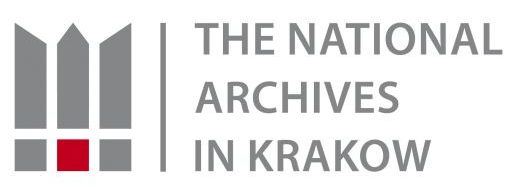CITIZENS, ASSOCIATES AND OUTSIDERS
Residents of the Royal Free Town of Podgórze 1784-1915
In the mind of the Emperor, the privileges from the years 1784–1785 meant that owners of property and craftsmen settling in Podgórze could obtain town citizenship, and their descendants inherited them together with property or if they continued the craft. The privileges resulting from the possession of town rights were mainly the right to use municipal enterprises for free or at a lower price as well as the right to rent municipal property. Only citizens had active voting rights.
Those interested in obtaining citizenship, usually people residing in Podgórze for years already, submitted an application to the Town Hall, in which they showed that they possessed means for maintaining their family (property, profession or financial resources). The application included birth certificates and recommendations confirming material status and good conduct while living in the town. After a positive decision from the Town Hall, it was necessary to pay the designated fees in the municipal payment office, and then swear an oath of loyalty to the Emperor as well as one of allegiance to the town leaders. On the basis of the Borough Laws from the middle of the 19th century, citizens were considered to be those paying taxes on property or industrial activity directly to the borough, as well as people recognised as citizens by the town leaders. Citizenship of the town was also obtained in the event of the acquisition of property as a result of inheritance. Town citizens had the right “to participate in foundations and firms, created separately for them”. Obtaining town citizenship was not, however, a condition of participation in the town council.
Citizenship and honorary citizenship granted by the Borough Council (from 1889, the Town Council) was noted in the “Book of Citizens of the Town of Podgórze”. With time, citizenship of Podgórze had only a prestigious significance – we can find proof of its proud possession in the cemeteries of Podgórze.
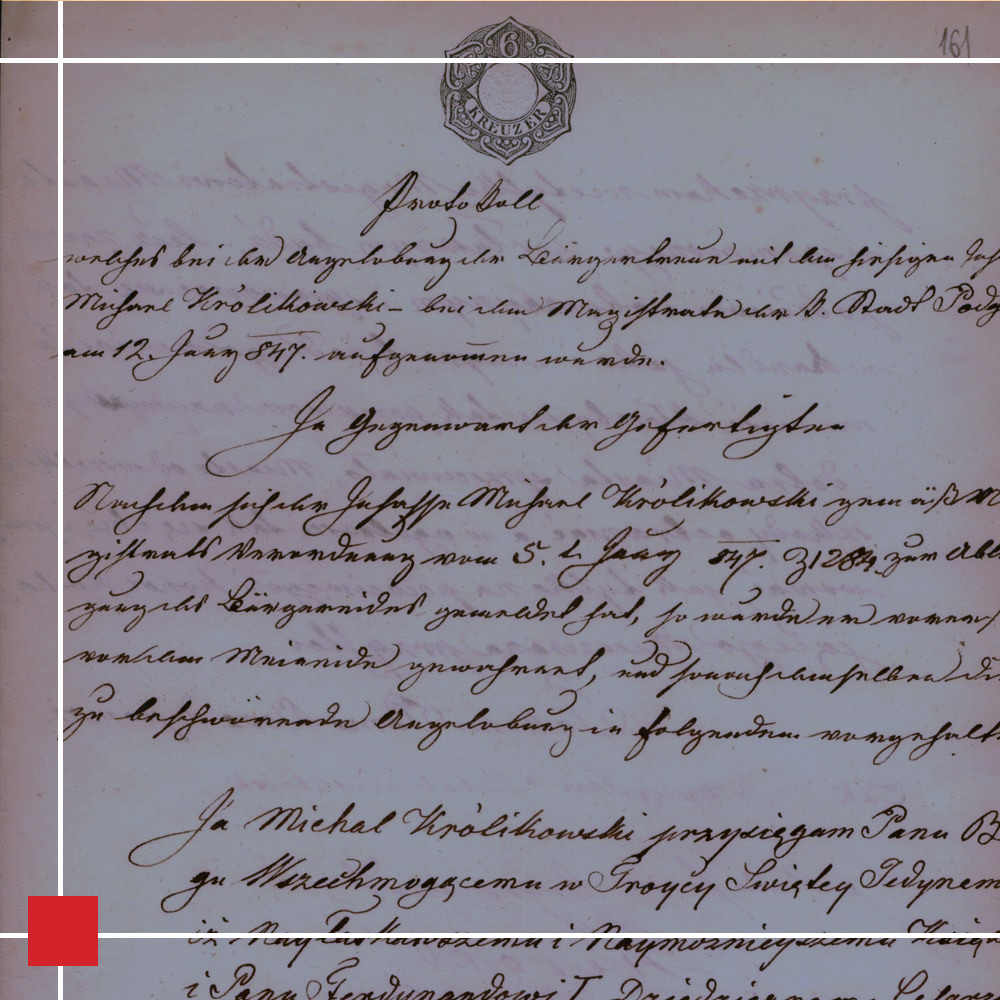
Protocol written in January 1847 during the acquisition of citizenship of the town of Podgórze and the swearing of appropriate oaths by Michał Królikowski, a tailor
(ANK, ref. no. P 38, p. 161–162)
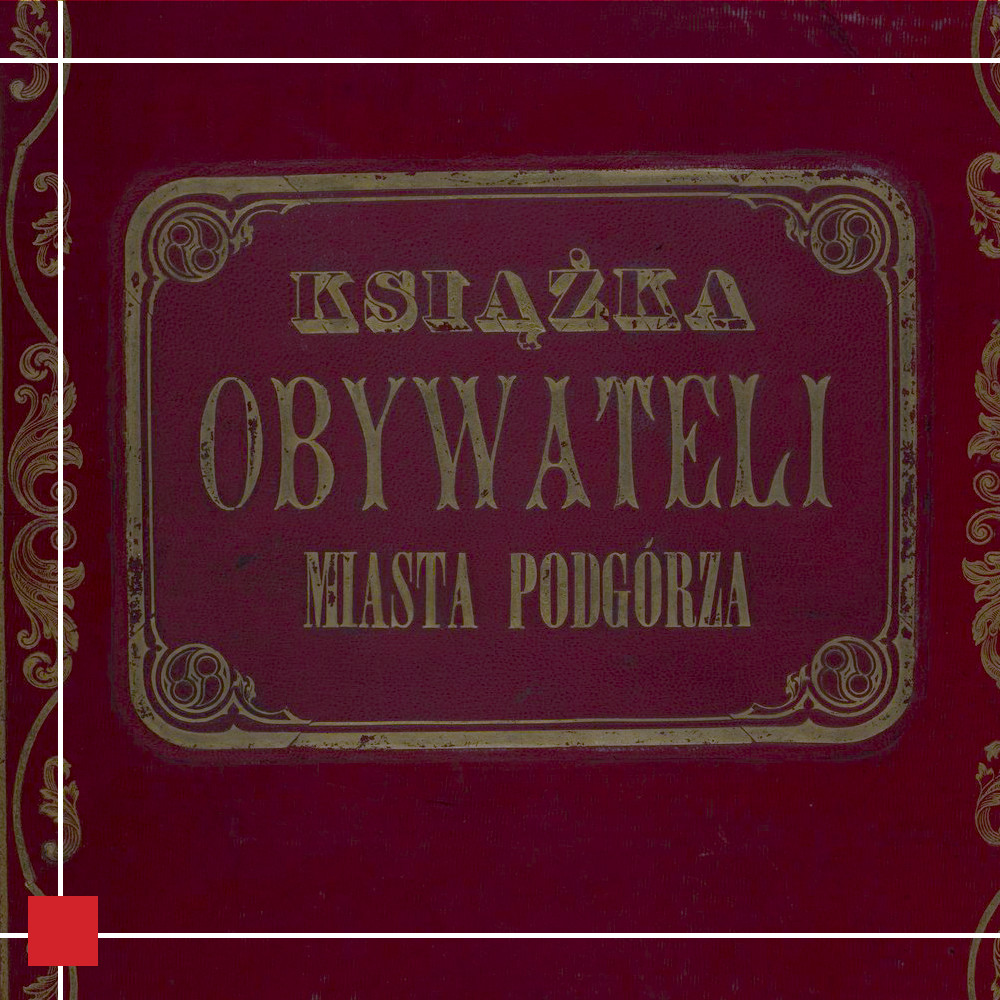
Decorative cover of “Książka Obywateli Miasta Podgórza” (Book of Citizens of the Town of Podgórze)
(ANK, ref. no. P 33)
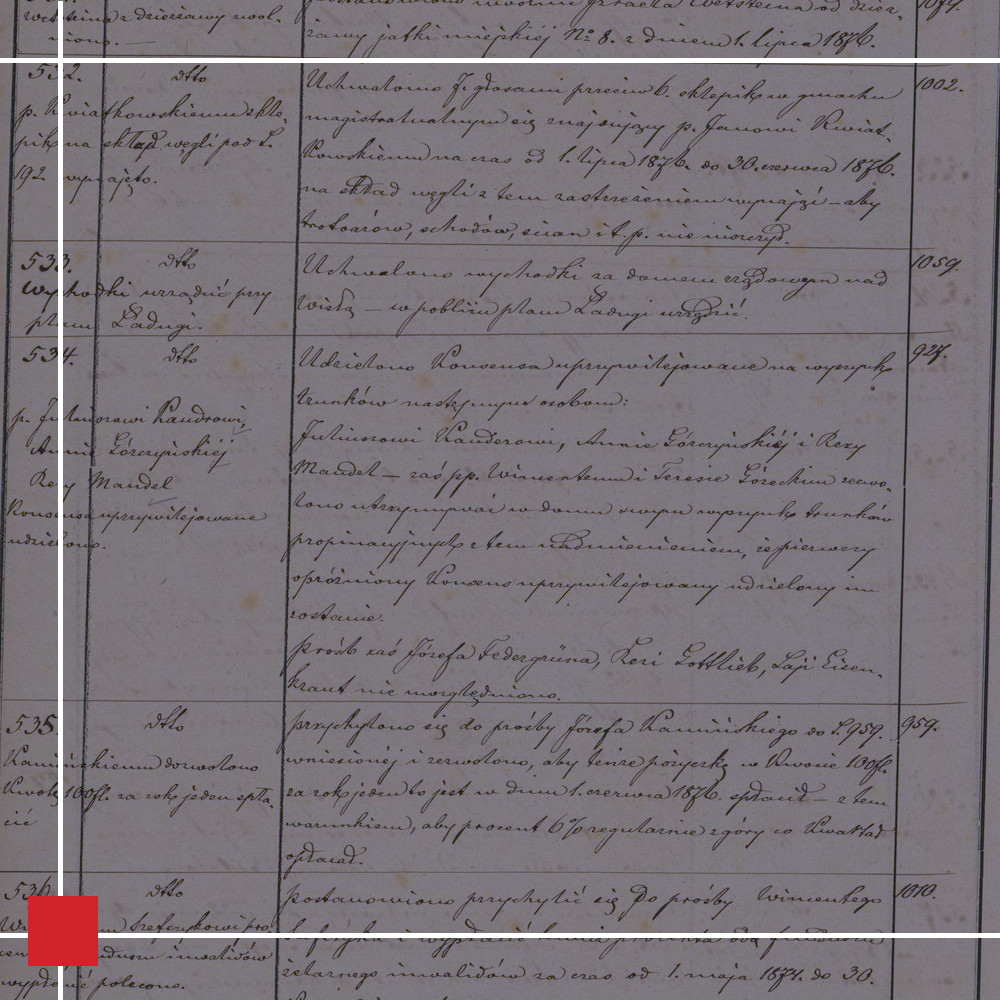
Law of the Borough Council from 7 June 1876 granting citizenship to 13 residents of the town
(ANK, ref. no. P 6, p. 116, no. 538)
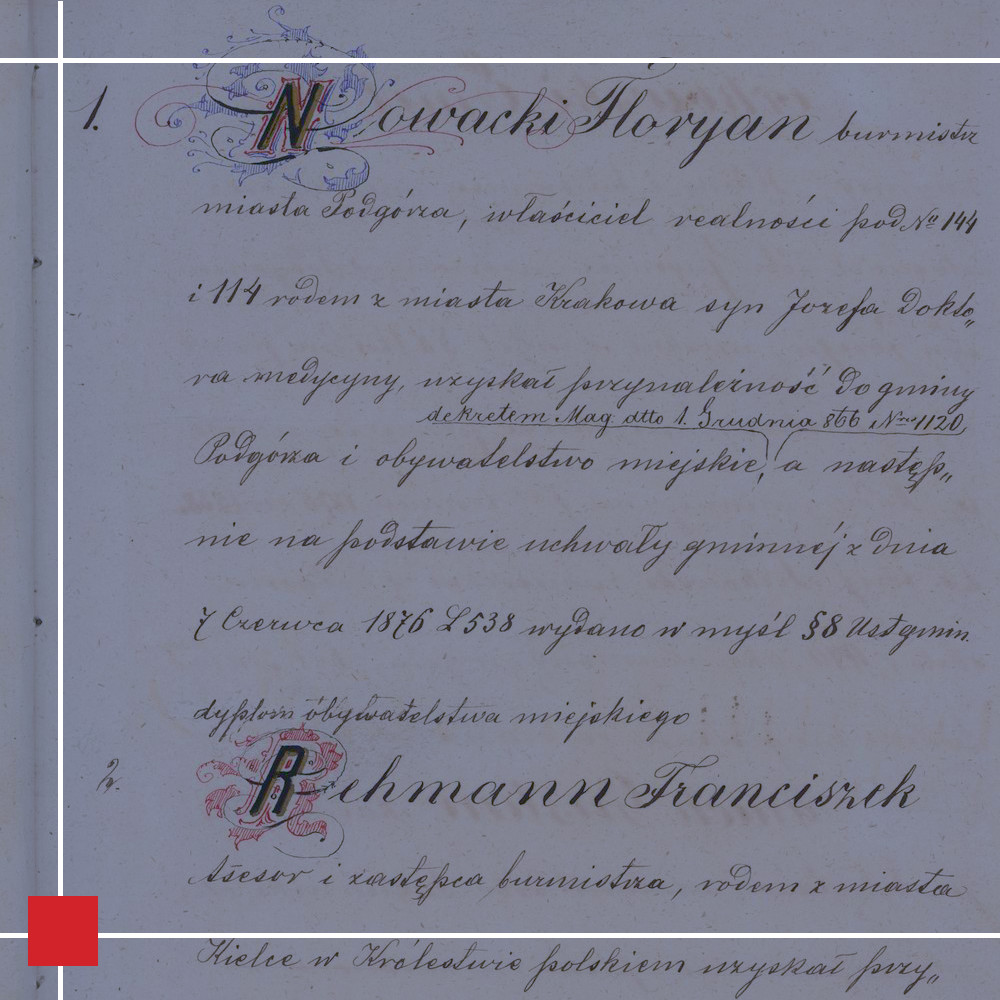
Entries in “Książka Obywateli Miasta Podgórza” (Book of Citizens of the Town of Podgórze) concerning the citizenship of Florian Nowacki and Franciszek Rehmann, performed in 1876 after a decision of the Borough Council
(ANK, ref. no. P 33, p. 37)
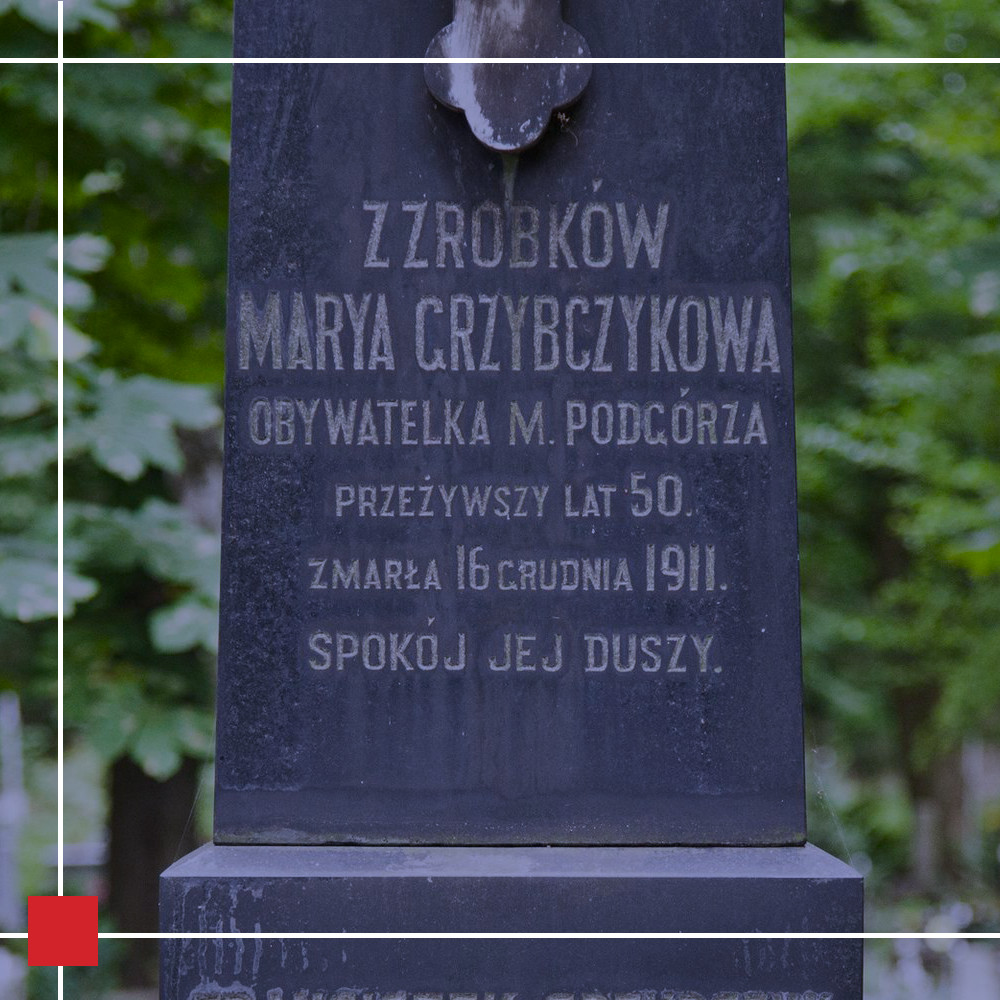
Gravestones of residents of Podgórze in cemeteries in Podgórze. The use of this title is also characteristic in 1915, when Podgórze was already a part of Kraków
(fot. Anna Seweryn)
